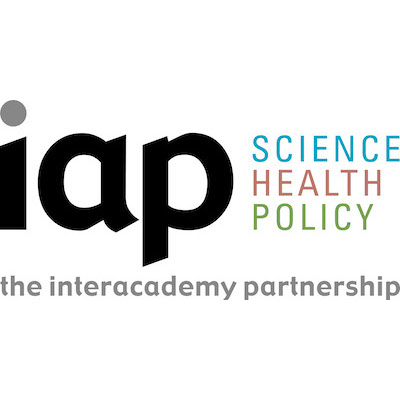“A vision for the world’s academies to play a vital role in ensuring that science serves society inclusively and equitably and underpins global sustainable development.”
The InterAcademy Partnership (IAP) was formally launched in South Africa in March 2016, bringing together three established networks of academies of science, medicine and engineering, namely IAP, the global network of science academies, the InterAcademy Medical Panel (IAMP) and the InterAcademy Council (IAC).
Under the new InterAcademy Partnership, more than 140 national, regional, and global member academies work together to support the special role of science and its efforts to seek solutions to address the world’s most challenging problems. In particular, IAP harnesses the expertise of the world’s scientific, medical and engineering leaders to advance sound policies, improve public health, promote excellence in science education, and achieve other critical development goals.
The work of the world’s academies of science, medicine and engineering has resulted in lives saved, better education, and more effective policy approaches to a range of issues. Academies are typically independent and highly committed institutions that recognize and promote excellence and achievement. By definition, they are merit-based, with members selected from among the leading scientific minds within a country or region.
In addition to their honorific roles, academies are vital civil society institutions that have the credibility to inform the public and policy-makers about problems and potential solutions. Their credibility comes not only from the scientific excellence of their members, but also from the fact that they are free of vested political and commercial interests. Indeed, although many academies were established by national governments and tasked with serving their countries by, among other things, bringing scientific perspectives to bear on national and international issues, they were also constituted as independent bodies.
Just as each IAP member academy represents an authoritative voice nationally, this unified voice of academies under IAP aims to have great impact at the international level. Now, as international attention has turned to the 2015 Sustainable Development Goals, IAP provides a collective mechanism and voice for science academies to further strengthen their crucial roles as providers of evidence-based policy and advice.
IAP will also continue to produce evidence-based statements and reports examining major priorities for sustainable development, and provide independent and authoritative advice to national governments and inter-governmental organizations, including the UN, on critical science-based issues.
Recent projects and resulting reports published by IAP include:
- Food and Nutrition Security and Agriculture (FNSA)
- Improving Scientific Input to Global Policymaking: Strategies for Attaining the Sustainable Development Goals
- Harnessing Science, Engineering, and Medicine to Address Africa’s Challenges
IAP will also use the expertise of its leading members to assist in building the capacity of its less-experienced and newest members, thus strengthening their ability to take on an advisory role in their own nations and to contribute to global discussions.
- Presidents:
Volker ter Meulen, Past President, German Academy of Sciences Leopoldina
Depei Liu, former Vice President, Chinese Academy of Engineering - IAP Policy Co-Chairs:
Richard Catlow, Foreign Secretary of The Royal Society
Masresha Fetene, Executive Director of the Ethiopian Academy of Sciences - IAP Science Co-Chairs:
Krishan Lal, Past President, The Indian National Science Academy
Cherry Murray, Member, US National Academy of Sciences and US National Academy of Engineering - IAP Health Co-Chairs:
Peggy Hamburg, Foreign Secretary, The US National Academy of Medicine
Depei Liu, former Vice President, Chinese Academy of Engineering























